Five not-so-well-known facts about Brazil every tourist visiting the country for the 2014 World Cup needs to know.
1) Napkin rollies: You’re going to eat in a restaurant or bar, you’re going to reach for a napkin from a little dispenser and you’re going to grab a piece of wax-paper.
Napkins in Brazil feel as if they’ve been coated in some kind of non-stick formula to stop any liquid adhering to them. They absorb nothing, they’re crunchy, and you need twenty to clean up the tiniest blob of grease, so good luck with that cheesy dribble of pizza hanging off your chin. You may as well use your hands.
So what are these napkins good for? Well, making spliffs, actually:
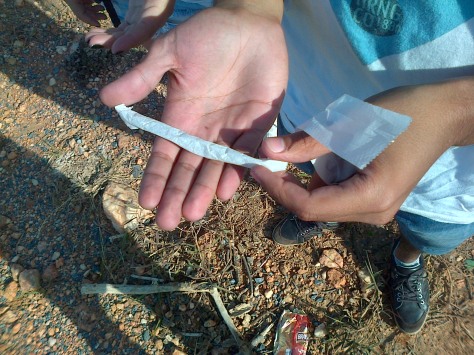
2) TP Backlog: I need to talk toilets. Brazil has a terrible plumbing system, and toilet-paper is not allowed to go down the drain. Next to almost every toilet in Brazil is a little plastic bin for your used toilet paper.
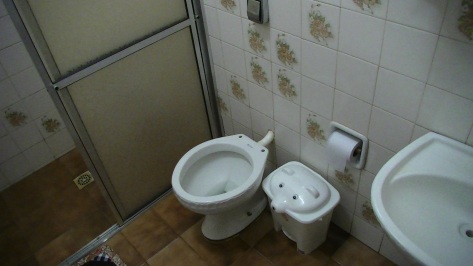
The cumulative effect of hundreds of thousands of visiting World Cup tourists throwing their toilet-paper down the drains could result in raw sewage pouring out onto Rio’s beautiful tiled streets.
Don’t do it.
3) Income disparity: On a more serious note, tourists should be aware that Brazil’s minimum wage is around 700 reais a month.
That’s about £185, or $314 in the US. A month.
In a country where a McDonald’s Happy Meal costs 20 reais and Brazil’s cheapest car costs 35,000 reais (£9,400 or US$16,000), that’s not very much.
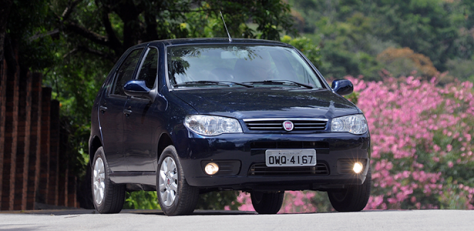
The price for a Fiat Palio Fire includes rear-seatbelts, AC and electric-windows. Wow. That’s the “buy-now” price, too. You’ll pay 50,000 reais if you want to pay installments.
So here’s the reality: street-sweepers, cleaners, McDonald’s workers, sales-assistants, porters, bus-drivers and even police-officers in Rio are making just 700 to 1000 reais a month.
That’s especially hard to imagine when you consider a couple of World Cup tourists could easily blow 300 reais on lunch and a few glasses of wine in a restaurant in Rio de Janeiro.
A visit to a night-club might cost 300 reais each for entry and a few cocktails (See “Fifteen things foreigners should know about Brazilian night-clubs“). A night out can cost thousands of reais if you order table-service and a couple of bottles of Absolut.
And remember, 700 reais is the official minimum wage. Consider the street-sellers, the Giras (trash-collectors) and the homeless, scraping by on a few reais a day, surrounded by wealthy tourists and locals thinking nothing of spending 10 reais on a Coca-cola.
It’s important visiting tourists keep in mind the huge disparity between the rich and poor in Brazil. It leaks into everything; crime, education, health, transport, housing, entertainment, safety and culture.
4) Gridlock: What time should you leave your hotel to attend your World Cup game? An hour before kick-off? A few hours?
How about the day before?
Traffic in Brazil’s big cities is monstrous, and it’s only going to get worse for the World Cup. Dilapidated and neglected roads can’t take the amount of cars and trucks packed into them, in what is a modernising, industrialised country. Despite the ridiculous price-tag of the Fiat Palio Fire, it is a best-seller. And remember, Brazil has its fair share of incredibly wealthy people driving SUVs and sports-cars, too.
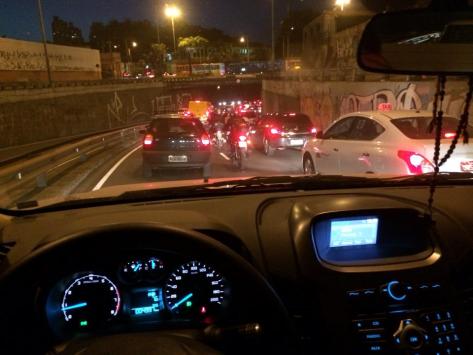
Driving is a source of independence and pride for modern Brazilians, even if you do just end up rolling off the forecourt and into two hours of gridlocked traffic.
If you can, tourists should just walk to the game. You’ll get there so much faster.
5) Fala ingles? Outside of the metropolitan tourist cities of Rio de Janeiro, Sao Paulo and Salvador you’ll struggle to find many Brazilians that can speak a whole lot of English.
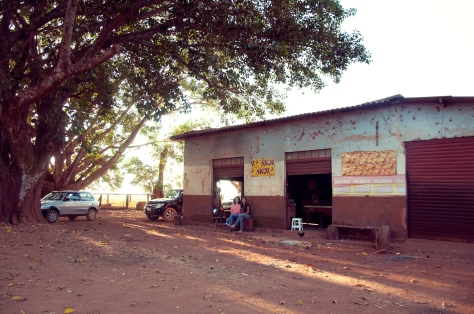
If you’re visiting Belo Horizonte, Manaus, Cuiaba or any of the other host cities, you’ll need to brush up on your Portuguese, as even in some of the big hotels the management don’t really prioritise teaching their staff English. It’s a case of time, money and the jeitinho brasiliero (“Brazilian Way”).
In any case Brazilians are very friendly people, and they’ll try their best to help you, even if the conversation consists almost entirely of Beatles’ song lyrics.
I’ll be writing five more things you need to know about Brazil, talking about winter, power and protests , very soon. Please comment or like if you want to hear more!
